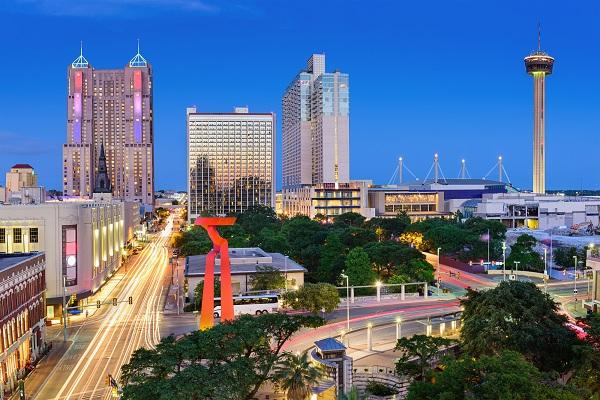San Antonio Businesses Stand Together for the “Day Without Immigrants” Movement
In a striking display of unity, numerous businesses across San Antonio voluntarily closed their doors to participate in the nationwide Day Without Immigrants protest. This coordinated effort aimed to spotlight the indispensable role immigrant workers play in the cityтАЩs economic vitality and social fabric. From family-run eateries to specialty retail outlets, these closures sent a clear message advocating for fair treatment and comprehensive immigration reform.
The spectrum of participating enterprises was broad, encompassing:
- Locally owned dining establishments
- Retailers situated in culturally rich neighborhoods
- Hospitality and maintenance service providers
- Small-scale manufacturers dependent on immigrant labor
| Type of Business | Neighborhood | Purpose of Closure |
|---|---|---|
| Tex-Mex Restaurant | Southtown | Recognizing immigrant workforce contributions |
| Artisan Clothing Store | Downtown | Raising immigration awareness |
| Janitorial Services | West Side | Backing immigrant rights advocacy |
Economic Effects and Community Reactions in San Antonio
The strike generated a noticeable economic impact throughout San Antonio, as many businesses voluntarily ceased operations to express solidarity with immigrant employees. Key sectors such as dining, retail, and hospitality reported revenue declines reaching up to 40%, underscoring the critical economic contributions of immigrant labor. This temporary halt also raised concerns among some business owners about potential long-term disruptions in supply chains and workforce availability if similar actions continue.
Community responses were varied but largely supportive. Advocacy organizations organized peaceful demonstrations and educational events to promote immigrant rights and economic fairness. Local coalitions emphasized the importance of cross-cultural solidarity, celebrating immigrant contributions while addressing the complexities such protests can evoke. Highlights of community engagement include:
- Advocacy groups: Coordinated workshops and marches attracting hundreds of participants.
- Business leaders: Voiced support, with some pledging ongoing collaboration, while others expressed caution about operational challenges.
- Municipal officials: Encouraged dialogue and calm, reaffirming the cityтАЩs dedication to inclusivity and economic resilience.
Obstacles Confronting Immigrant Workers Revealed by the Strike
The widespread closures during the “Day Without Immigrants” strike brought to light the numerous challenges immigrant workers face daily. Issues such as job insecurity, wage gaps, limited healthcare access, and inadequate legal protections were starkly highlighted. The absence of immigrant labor made it evident how deeply their work is woven into the local economy and how systemic barriers exacerbate their vulnerability.
Community leaders and employers identified several persistent difficulties impacting immigrant workers:
- Communication hurdles: Language differences that restrict career advancement and workplace integration.
- Fear of retaliation: Concerns over deportation that deter reporting unsafe or unfair conditions.
- Lack of labor rights awareness: Limited access to legal resources and protections.
- Economic vulnerability: Higher unemployment rates among immigrants during downturns.
| Challenge | Consequences |
|---|---|
| Language Barriers | Reduced job mobility and workplace misunderstandings |
| Fear of Deportation | Hesitation to report labor violations or unsafe environments |
| Wage Disparities | Financial instability and increased exploitation risk |
| Limited Healthcare Access | Undiagnosed health issues leading to absenteeism |
Strategies for Businesses to Champion Immigrant Rights and Inclusion
Meaningful support for immigrant communities extends beyond symbolic acts. Businesses can implement concrete measures to cultivate inclusive workplaces, advocate for policy change, and empower immigrant employees. Adopting equitable hiring practices that prioritize fair wages and benefits for immigrants strengthens both the workforce and the broader economy. Additionally, providing language support and cultural sensitivity training fosters a welcoming environment where immigrant workers feel respected and understood.
Moreover, companies can collaborate with advocacy organizations to amplify awareness and back legislative initiatives protecting immigrant rights. Publicly endorsing movements like the “Day Without Immigrants” strike helps spotlight the essential contributions immigrants make. Simple yet impactful actions include displaying informational materials, hosting community dialogues, or donating proceeds to immigrant support services. The table below summarizes practical steps businesses can take:
| Initiative | Benefit |
|---|---|
| Equitable Hiring Practices | Enhances workforce diversity and fairness |
| Language Support Programs | Boosts communication and employee retention |
| Advocacy Partnerships | Raises public awareness and influences policy |
| Community Engagement Events | Strengthens trust and supports immigrant networks |
| Financial Support for Services | Funds legal aid and immigrant assistance programs |
Conclusion: Recognizing the Indispensable Role of Immigrants in San Antonio
The “Day Without Immigrants” strike in San Antonio served as a powerful reminder of the critical role immigrant workers play in sustaining the cityтАЩs economy and enriching its communities. By voluntarily closing their businesses, local entrepreneurs not only expressed solidarity but also highlighted the persistent challenges faced by immigrant laborers. As immigration debates continue nationwide, such collective actions emphasize the profound impact immigrants have across industries and the importance of fostering inclusive policies that support their rights and contributions.




